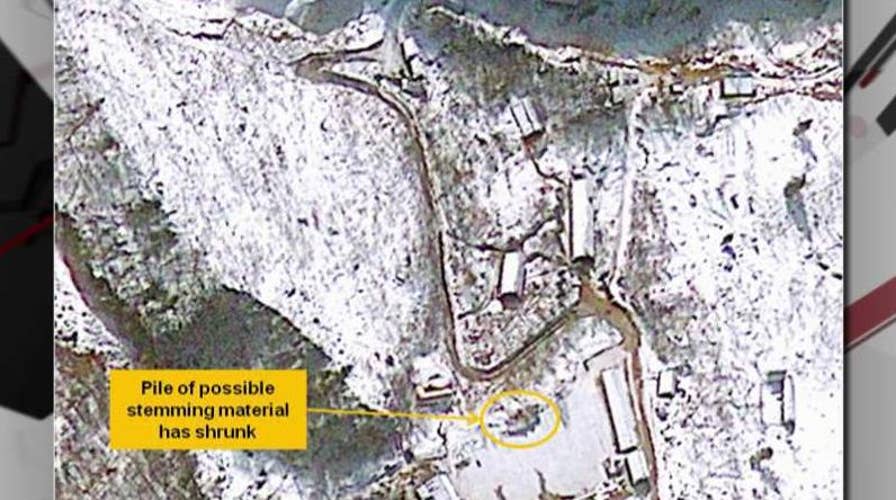If North Korea is confirmed to have successfully tested a hydrogen bomb, as the country's Stalinist dictatorship claimed Wednesday, it would signify that Pyongyang's nuclear weapons program is far more advanced than most analysts have imagined, a veteran North Korea watcher told Fox News late Wednesday.
"If in fact it was a hydrogen test, this means the North Koreans are advancing their nuclear weaponization program at a faster and more efficient (and deadly) pace than most analysts have predicted in the past," Dr. Bruce Bechtol wrote in an email.
"Thus, yes, it changes things," Bechtol added. "It increases the possibilities regarding the threat that North Korea can pose to South Korea, the region, and the U.S."
Bechtol, who has authored five books on North Korea, including the recent "North Korea and Regional Security in the Kim Jong-Un Era", also warned that Wednesday's test would likely be followed by a long-range ballistic missile test.
"We have seen nuclear tests conducted within a very short time frame – either before or after – long-range ballistic missiles tests, three times now since 2006," he wrote.
However, Bechtol also noted that several key questions about the test remain unanswered, including whether the device tested was in fact a hydrogen bomb, as well as how strong the device turned out to be. The North's statement said the hydrogen bomb it tested was "miniaturized", but gave no further details.
Another question posed by Bechtol was whether Iranian officials were present at Wednesday's test, as they were at the previous test in February 2013. The answer, he wrote, "would have obvious ramifications" for last summer's nuclear agreement between Tehran and various world powers.
The test comes amid failed diplomatic efforts to persuade the North to give up its nuclear ambitions. Six-nation negotiations on dismantling North Korea's nuclear program in exchange for aid were last held in late 2008 and fell apart in early 2009, when North Korea was led by North Korean leader Kim Jong Un's father, Kim Jong Il, who died in late 2011.
North Korea, analysts say, needs nuclear tests for practical military reasons. Such tests advance its aims to build nuclear-tipped missiles that can be used as deterrents against its enemies -- and especially against the United States, which Pyongyang has long pushed to withdraw its troops from the region and to sign a peace treaty formally ending the Korean War.
Some analysts say the North hasn't likely achieved the technology needed to manufacture a miniaturized warhead that could fit on a long-range missile capable of hitting the U.S. But there is a growing debate on just how far the North has advanced in its secretive nuclear and missile programs.
Writing in December, after Kim Jong Un bragged of H-bomb capabilities, nuclear expert Jeffrey Lewis noted that building such a bomb "would seem to be a bit of a stretch for the North Koreans."
"Thermonuclear weapons are tricky; making one work requires a bit of test experience," he wrote on the North Korea-focused 38 North website. But, he added, "The North has now had a nuclear weapons program for more than 20 years. This program has yielded three nuclear tests. North Korean nuclear scientists have access to their counterparts in Pakistan, possibly Iran and maybe a few other places. We should not expect that they will test the same fission device over and over again."
Fox News Channel's James Rosen and The Associated Press contributed to this report.













































